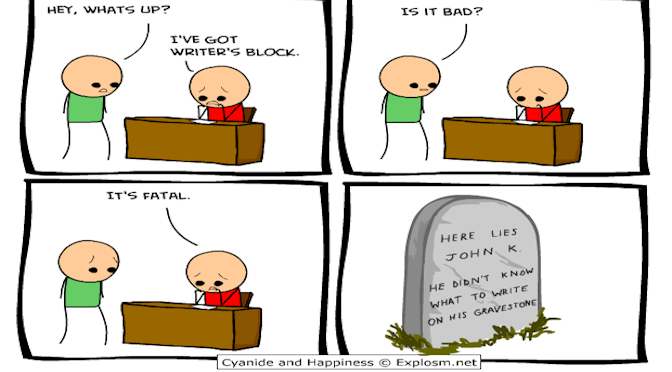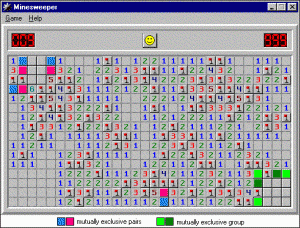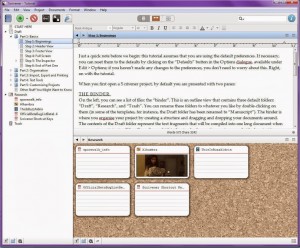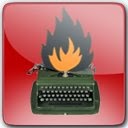One of the most frustrating parts of writing is having a project in mind but being unable to move forward on it. We run into that metaphorical wall and shut down before we can complete our thoughts. Some people are good at just taking a couple steps back and then vaulting that wall while the rest of us look on in jealousy. But for others, it becomes incredibly hard to face the inner turmoil of self-doubt and just general lack of motivation.
So how do you break down that wall?
1. Take (Controlled) Breaks
One of the most simple and surprisingly effective ways of ending the lack of motivation is to simply pace yourself. A lot of times the root cause of motivation gaps is that little inner critic talking shit in your ear constantly. You literally need to stop thinking about a work in order to begin making progress on it again. One rule of thumb that was passed on by another author some time back was that you should take a small 5 minute break for every 500 words you put down. That sounds excessive, but consider that means for you to have an hour-long break you’d have to have 6,000 words. Even Stephen King says you only need to make sure you hit a minimum of 2,000 a day.
 |
| Seen here still writing with his toes |
“But that seems like giving up,” some of you might be saying.
The truth is that so long as you go back to the work, no one is ever going to know any different in the end result other than you. In fact, some of the most successful writers in the world have very well known side hobbies that they’ve gotten into besides the always used “reading” that a lot of writers seem to throw into their bios because it just sounds more acceptable.
And while reading is important, a lot of times the reason they cite that as a hobby is because you can often count “reading” or “watching movies” as “research” and make yourself feel more professional. But when you do end up reading or watching movies you’re usually going to do that for several hours (or an entire day). Want to know a quick five minute hobby you can do between 500 words? JK Rowling infamously has become a master of Minesweeper.
And her books are huge, so you’ll be fine.
2. Have Multiple Projects
Some of you understand the benefits of stepping back from a project but just can’t bring yourself to devote that time to something trivial like Minesweeper or Solitaire. This is perfectly fine, but that’s where the next distraction comes in: A whole other project. It sounds counter-intuitive to enhance your focus by spreading your attention, but strangely it tends to work.
In an FAQ, Neil Gaiman was asked how he keeps himself motivated to finish a story instead of “hopping off to a fresher idea”. Neil’s reply?
“I quite like having more than one thing on the go. Then when I get stuck on one thing I can go and mess around with something else.”
Once again, that’s Neil Gaiman, a man many of you should know and who has stated quite openly that he thinks Writer’s Block doesn’t actually exist. That seems like he’s contradicting himself. But, when you think about it, his two statements perfectly dovetail. If you’ve gotten stuck on one project but then jump to another one instead of staying stuck on that first one – you’re not “blocked”. It’s kind of like the flow of a river: stopping the river and diverting it are two very different things.
So be the river.
 |
| It’s the only water in the forest. |
3. Use An Aid
Here is a short list of three programs that I know have helped either myself or people around me, and there’s a ton more like them out there if you’re willing to go looking. So keep in mind that these are just addressing three of the most common problems I’ve seen.
Scrivener
This one is mostly self explanatory but almost vital to anyone who finds their biggest problem is organization. The program features things such as a virtual cork-board for their notes and stray ideas, an outline generator and an editing function that allows you to dice up your work into as many smaller pieces as you’d like while you do the thing no one wants to do.
Coffitivity
This one, a mainstay for one of my screenwriter friends and I’m sure many others, is a bit more esoteric in function. There’s a stereotype floating around that writers can always be found taking up a table at a local coffee shop with their laptops. A lot of non-writers figure this is just to “make appearances” and “look busy” to the public. But I’ve found that writers who flock to public places just feel more comfortable when they have the background noise of others buzzing about. So, for those of who you need that comfort, there’s now a digital version of it.
Write Or Die
And, as a final suggestion, one that I actually use myself from time to time: Write Or Die. It may be a little cheesy, but my biggest problem tends to be keeping track of time vs. how much I’ve done. I can and have written 2,000 words in an hour. But in day-to-day activities I often find myself getting distracted or not realizing that I just stared at a sentence for 10 minutes. To help with this, Write or Die gently reminds you to focus by tormenting you. It’s kind of like having someone keep track of your progress while brandishing a whip.
 |
| And the safe word is a paragraph |
4. Have A Playlist
This one, just about everyone has already tried before. But for the few of you out there who are seeing this and just haven’t tried it, do it. Some people think it would be distracting to listen to music while writing because you’d be paying more attention to the music than the story. But the fact of the matter is that, like the café sounds above, music will give you background noise that calms the human mind and inspires it.
We’re still not finished evolving, there are primitive corners of our mind that need sound to comfort us because silence is unnatural. With music around you, not only can you fight back that unnatural and uneasy feeling but also fill yourself emotions and ideas. It may not work for you, but it’s still worth a try, and many people have found their voice while half-listening to the voices of others.
Though, as one last point of advice, it’s always a good idea to make sure that the music you’re listening to is conducive to the feeling you’re trying to convey in your writing. This, for instance:
Does not say “love story”.













